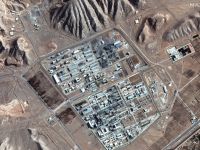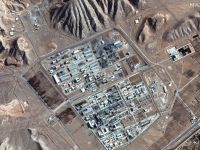By Munir K. Nasser
Washington, DC
National Security Advisor Sandy Berger called on the Palestinians to “compromise” on the core issues, and urged them to “leave behind some of the traditional baggage that has been part of their ethos and their ideology for decades.”
Speaking on a television program this week, Berger urged the Palestinians to show “creativity” on the issue of Jerusalem like the Israelis. He said, “Ultimately, the Palestinian authority and the Israeli government have to come to a particular decision. I think the Israelis were prepared on some of these issues to be at least more creative in thinking about solutions. But I think that it's incumbent now on the Palestinians to show the same kind of creativity.”
Berger said if there is a will for the parties to get back together again, the US will take a fresh crack at it. He argued that “It depends upon the Palestinians deciding that they have a clear choice here. Down one path is confrontation. Down the other path is agreement. The only way to get to agreement is to compromise, and that means leaving behind some of the traditional baggage that has been part of their ethos and their ideology for decades. But if they're not prepared to do that, they're not going to give their children a better future, a different future than they've had. And I believe that there are many people in the Palestinian leadership, who understand that choice very clearly.”
Berger stressed that if the US did not force these issues now, “it's not going to get easier as it gets closer.” He added that the Clinton Administration brought the parties together and forced them to confront these issues. “We actually broke open a number of them,” he said.
When asked whether the failure to reach an agreement meant that every concession in pursuit of agreement was no longer operative, Berger said the President Clinton set down some rules of the road on day one. “We wouldn't talk to the press. We'd have a complete press blackout, which essentially worked. Number two, nothing was decided till everything was decided. And that was very clearly understood by the parties,” he explained.
Berger added that during the negotiations, one party would put something forward at one point, and it would pull it back at another point. “So I believe that neither Israel nor the Palestinians are bound in any way, legally or morally, to any positions that it took in Camp David,” he stressed.
Berger made it clear that the Camp Davis summit has “broken the iceberg” of taboos around the core issues. “The pieces are now floating around. The two parties will have to decide whether they want to drift now towards confrontation, which I think is not in either's interest, or whether they want to look again at some of the positions they took and see whether there is, particularly on the Palestinian side, some more movement,” he remarked.
When he was pressed to say whether he was disappointed in the Egyptians and the Saudis for not giving Arafat cover to make a decision, Berger said the Arab countries should “look at this reality sharply and starkly in the eye and realize that there is either conflict or there's agreement. There's no middle ground. They've got to choose,” he stated.
Berger said he hopes that over the next several weeks that the other Arab countries will work with Arafat “and recognize that the choice here is confrontation or agreement and support him in reaching an agreement that involves compromise based on principle. But we would hope that the other Arab countries would express very clearly to Arafat their support for an honorable agreement.”
He said that King Abdullah of Jordan “played quite a constructive role” during the negotiations. He added that he doesn’t know what transpired between Egyptian President Hosni Mubarak and Arafat.
“I think that all of the Arab countries, including our friends, the Egyptians, have to face reality here. This problem is not going away. One possibility is not simply continuing along the status quo. There is no status quo in the Middle East,” he argued – Albawaba.com
© 2000 Al Bawaba (www.albawaba.com)







